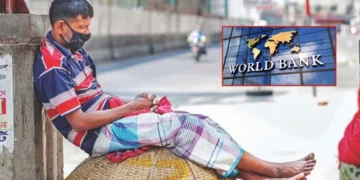As Eid-ul-Azha approaches, the government has taken a bold step to bring order to the leather market by officially fixing the price of small cow’s raw hides.
Ahead of the upcoming Eid-ul-Azha, the government has announced new prices for sacrificial animal hides. This year, the price of salted cowhide in Dhaka has been increased by 5 taka compared to last year, now set between 60 and 65 taka per square foot. Outside Dhaka, the price has also gone up by 5 taka, reaching 55 to 60 taka per square foot. At the same time, the prices for goat and sheep hides have been raised by 2 taka each. Sheikh Bashir Uddin, the Trade Adviser, shared these updates at a press conference on Monday afternoon at the Ministry of Commerce in the Secretariat.
He explained that while the price for salted cowhide in Dhaka is now between 60 and 65 taka per square foot, outside the capital it’s 55 to 60 taka. The minimum purchase price for a full salted cowhide has been fixed at 1,350 taka inside Dhaka and 1,150 taka outside. For sheep hides, the price is between 22 and 27 taka per square foot, and for goat hides, it’s 20 to 22 taka.
Read More: 78,000 Road Transport Running with Fake Number Plates – A Threat to Road Safety in the Country
Emphasizing the importance of preserving raw hides properly, he added that this year the government will supply 30,000 tons of salt free of cost to madrasas and orphanages. Also, to maintain quality, no raw hides from outside Dhaka will be allowed into the city for 10 days.
For some context, last year the prices were a bit lower outside Dhaka, salted cowhide was 50 to 55 taka per square foot there, while in Dhaka it was already 60 to 65 taka. Sheep and goat hide prices were also slightly lower last year.
Eid-ul-Azha generates a massive supply of rawhides from sacrificial animals. This seasonal spike plays a critical role in the country’s leather industry, a major export sector and source of employment.
However, in this years, chaos in pricing, poor preservation, and syndicate control have caused huge losses for seasonal traders and the rural poor. By fixing the prices early, the government aims to prevent such outcomes this year.

















